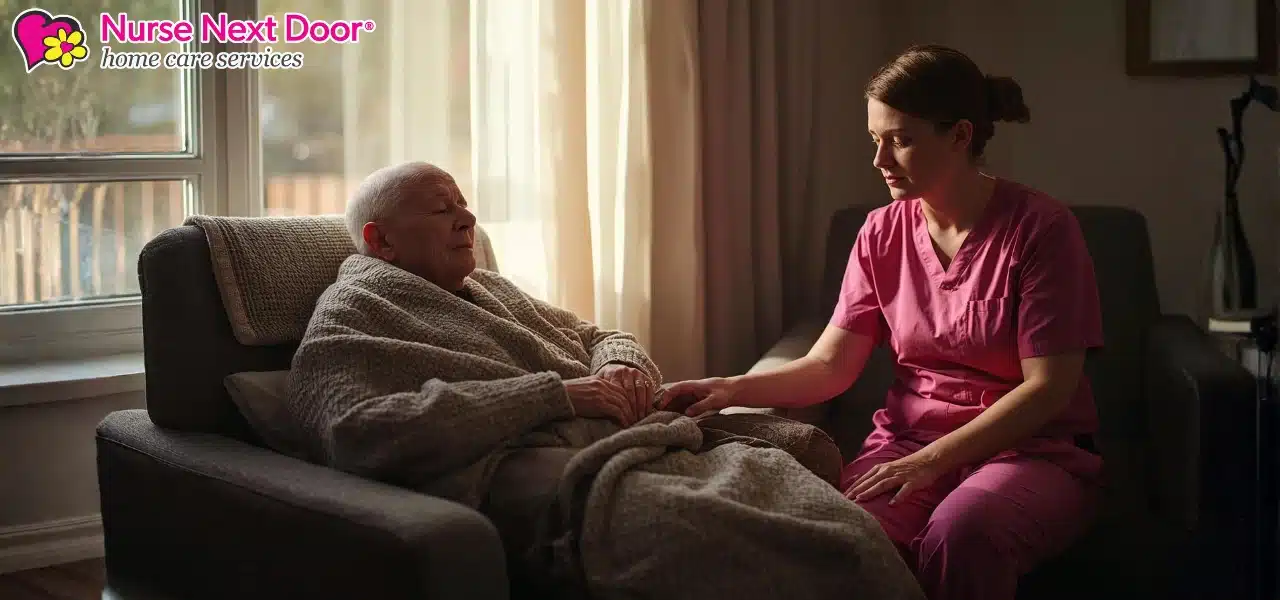
Home companion care plays a significant role in improving seniors’ lives, giving them the support they need to live independently and comfortably. As the elderly population grows, the availability of companionship and at-home personal care is more important than ever. Research shows that 75% of adults aged 50+ prefer to age in place, highlighting the need for these services. This guide explores how home companion care and personal care services improve seniors’ quality of life through companionship, assistance with daily activities, and emotional support.
How to Find Dementia Care Services in Northern Virginia
Emotional and Mental Health Benefits
Home companion care goes beyond providing physical support. It also focuses on happiness and fulfillment in the lives of seniors. Many seniors are affected by feelings of isolation and loneliness. However, having a home care companion ensures that there is always someone to converse with, share a meal with, or simply spend the day with. This kind of emotional support brings peace and calmness to the lives of seniors who often face the stress of declining health and aging. Companionship and at-home personal care even includes engaging activities like games and hobbies, keeping seniors mentally sharp and emotionally fulfilled. These services make a big difference, helping seniors feel valued and engaged.
Social Interaction and Community Engagement
Home companion care also plays a role in helping seniors stay socially connected. Research shows that 43% of seniors feel lonely, but having a home care companion provides meaningful interactions that help reduce isolation. Caregivers offer consistent companionship, making it easier for seniors to build and maintain relationships.
Apart from one-on-one interactions, home companion care also encourages community engagement. From helping the elderly with attending nearby events to getting them involved in mentally stimulating activities, a home care companion makes them stay mentally and physically active and involved. Research indicates that seniors can reduce their chances of dementia by 30% – 50% if they are socially active.
Social engagement also gives seniors a sense of belonging and purpose, improving emotional well-being. Home care agencies like Nurse Next Door promote this through their unique and personalized approach, which helps seniors feel appreciated and connected with the outside world.
All Stages of Alzheimer’s Disease
Assistance with Daily Activities
Performing tasks like cooking, bathing, walking, basic household chores, or running errands can get more difficult as people grow older. A caregiver can help seniors maintain some level of independence and dignity while receiving the proper support that they need at home.
Along with helping with daily activities, hobbies, and traveling, caregivers also ensure the client’s safety. They prevent accidents like falls, and give families peace of mind.
With the right care, seniors can stay in their own homes, feel more confident, and enjoy life without stress. Home companion care makes all the difference in helping seniors live independently while feeling supported and secure.
Physical Health and Well-Being
Regular physical activity contributes to the overall well-being of seniors. Caregivers can motivate seniors to stay physically active by setting easy yet beneficial goals for them and incorporating enjoyable activities like walking or gardening into their daily routines.
They also assist with meal planning and preparation to ensure seniors have balanced and nutritious diets. This helps maintain overall wellness and prevents malnutrition.
Additionally, caregivers actively monitor health conditions together with ensuring patients take their medications regularly.
6 Signs Your Loved One Needs In-Home Senior Care
Cognitive Health and Lifelong Learning
Home companion care even keeps seniors mentally active. Solving puzzles, brain games, reading, and learning new skills are some of the activities that can lead to improvements in cognitive health. Such activities are also beneficial for those living with Alzheimer’s disease and dementia. Lifelong learning and community classes for the elderly enable them to discover new interests and stay intellectually engaged. Nurse Next Door’s caregivers can help seniors take part in various mentally stimulating activities to help support brain health and cognitive performance. This way, seniors can continue living an active lifestyle while staying mentally sharp.
Conclusion
With home companion care, aging doesn’t have to mean feeling alone. Instead, it can be a time of comfort, laughter, and meaningful companionship. Seniors can enjoy a fulfilling life with the support they need. Home companion care ensures they remain active and engaged, which contributes to their overall well-being and happiness.
For comprehensive and compassionate home care, consider Nurse Next Door. Our dedicated caregivers provide personalized 24/7 companionship and support, enriching the lives of seniors. Get in touch now and let your loved ones live their golden years to the fullest.



